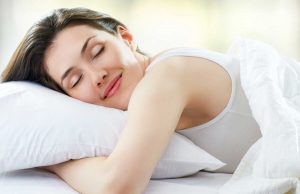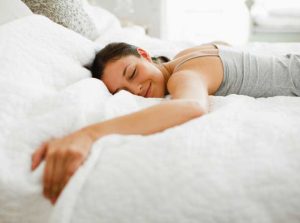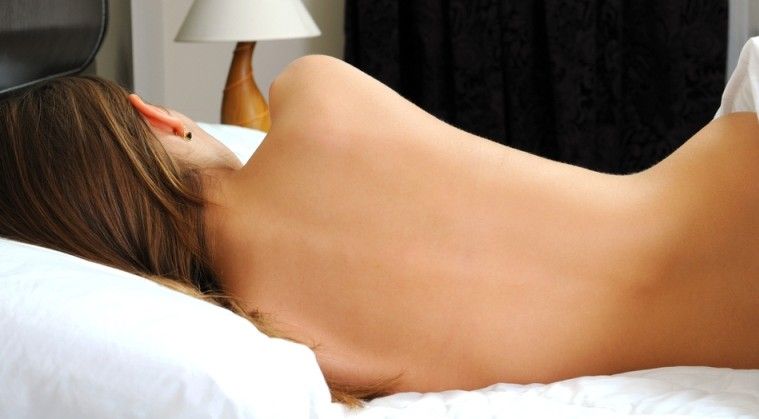If you are anything like me, then you have probably heard a thousand times about many myths and legends related to sleep. However, you should be careful because some ideas that are shared around are actually counter-productive towards sleep. As more and more people are suffering from sleep disorders, it is essential to unravel the truth from the prejudices about sleep, and to go back to having good sleeping habits.
The hours of sleep before midnight count double

Image courtesy: www.pinterest.com
Among the ideas that one regularly reads about sleep and its quality, the one according to which the hours of sleep before midnight are worth double really isn’t true. What does that truly mean? Should we really fall asleep before midnight to enjoy a real restful sleep? In reality, having a proper, recharging night has absolutely nothing to do with time and whether you go to sleep before or after midnight. It is not a matter of time. The first hours of sleep are certainly more restorative than the following, but that happens to be true only when one one goes to bed at 10 pm or after midnight.
Related Reading: 18 Pros and Cons of Adjustable Beds
You have to sleep 8 hours a night
It has been estimated that the amount of sleep necessary for an adult is about 8 hours per night. But that does not mean we should all sleep 8 hours each night. This is only an average. Some need fewer hours of sleep, and others more. A good restorative night should allow you to feel rested and refreshed when you wake up in the morning, as well as enable you to stay focused all day.
It is better not to eat or to have a light meal before sleeping

Image courtesy: www.pinterest.com
We often hear that skipping dinner is not important. It is really recommended to have a light meal in the evening. But not eating or not eating enough can cause nocturnal awakenings and snacking cravings. It is advisable to drink a glass of milk before sleeping. Milk contains tryptophan, an amino acid linked to the production of serotonin, a molecule that promotes relaxation and sleep. Starchy foods promote the production of insulin, which has an important role to play in tryptophan uptake.
Sleeping with plants is bad for sleep
No doubt you have already read or heard that plants were to be banished from the bedroom. They would suck up all the oxygen in the room and then become toxic. But it is actually an urban legend. A plant sucks much less CO2 than a pet or just your spouse! If installing a greenhouse in one’s bedroom is not recommended, having one or two plants near one’s bed is of no consequence and is therefore safe. Some plants even happen to have a beneficial impact. This is the case with depolluting plants such as Ficus Benjamina or bamboo palm. It is not just about the de-pollution, of course. With plants beside your bed-stand, you might feel calm and relaxed, much like the feeling you get when you use a vaporizer. Well, it is probably because plants innately had a rejuvenating effect on us.
You have to go to bed earlier to get up early

Image courtesy: www.pinterest.com
It would seem logical. But that is not necessarily the case. If it is possible, and even highly recommended, it is much better for you to adopt a regular schedule of bedtime and sunrise hours. Don’t forget that there are early-to-late, late-night, early bird and late-risers. Which means that it is not by forcing yourself to go to bed earlier than usual that you will solve your waking problems. Our internal clock is genetically programmed, and it is completely up to you to discover and learn how it works, in order to be able to respect it and help your body get the sleep it needs to function properly.
You have to sleep with your head towards the north
Here is a particular prejudice conveyed by Feng Shui, a Chinese geomancy. It would be sleeping with your head aligned with the north-south magnetic axis of the Earth, which would promote a better quality of your sleep. But no scientific proof has ever been brought to confirm this theory. Some studies have even rather denied it …
Count the sheep to sleep

Image courtesy: www.pinterest.com
Who has never tried, while being a child at least, to count sheep to try to fall asleep in case of insomnia?
Well it is time for you to forget this idea! Counting the sheep or some other animal will not help you fall into the arms of Morpheus. It’s actually the opposite. Counting the sheep stimulates your brain and therefore does not put it in good conditions to help you fall sleep.
Dreaming is a guarantee of a good sleep
Can dreams be considered as proof of a good night’s sleep? Some say it. But that is not the case! Dreams are formed during the phases of REM sleep, a very light sleep during which the brain is almost as active as when we are awake. These are not the most restorative phases of sleep, quite the contrary.
If you feel sleepy at some point during your day, then it means you are not getting enough sleep
We have talked many times about this before in our articles. It is completely normal for you to feel tired and sleepy at some point in daytime, even after getting the amount of sleep you usually need. As we said before, your body’s circadian rhythm has to to do two complete circles every day, hence why you tend to feel sleepy around 1 or 2PM. Moreover, sleepiness can also be caused by the use of some medications, or stress, etc.
Hitting the snooze button is a good trick for you to get more sleep
You may regard your snooze button as your life savior but we are here to sadly announce the opposite: snoozing is everything but good for you and your sleeping habits. It actually makes things much worse than they could be. You may be thinking that snoozing helps you sleep some more, but what it truly does is that it allows you to fall in a very deep sleep then wake you out of it while startling you, which has an awful impact on your mood as well as on your condition.

